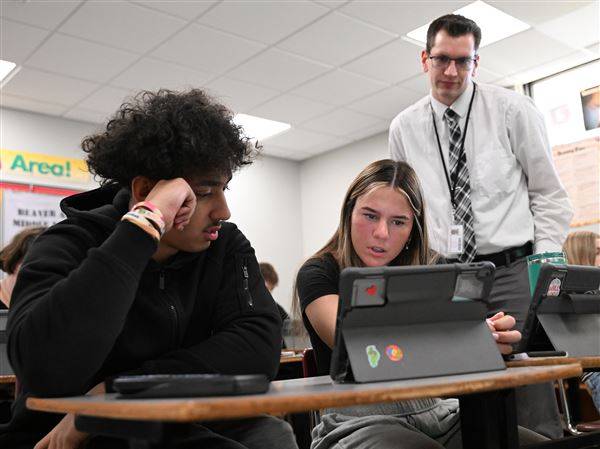AI’s Impact on Education
As artificial intelligence reshapes industries worldwide, its impact on education is becoming increasingly significant. In Pittsburgh, schools are embracing AI-driven tools to enhance student learning, reflecting a broader shift in how technology is integrated into classrooms. From personalized curriculum models to AI-assisted teaching aids, the adoption of this technology is revolutionizing traditional learning methods. However, its implementation also raises important questions about educational quality, equity, and the evolving role of teachers.
AI in Learning and Teaching
Adaptive Learning Systems
AI’s growing presence in education is reshaping how students engage with material. Adaptive learning systems analyze individual performance, adjusting content in real time to match each student’s needs. In Pittsburgh, educators are leveraging AI to streamline lesson planning and provide instant feedback, allowing teachers to focus on deeper instruction. By automating administrative tasks, AI promises to make learning more efficient—but its effectiveness is still a topic of debate.
Challenges in AI-Driven Education
Not all AI-driven initiatives have been welcomed. In Pennsylvania, the rejection of Unbound Academy, an AI-powered cyber charter school, highlights the skepticism surrounding automated education models. The proposal relied on just two hours of AI-driven learning per day, a model critics argued was insufficient for comprehensive education. Concerns over inadequate instruction time and the commercialization of public education fueled opposition, signaling broader apprehensions about AI’s limitations in teaching.
The Role of Human Educators
In contrast to fully automated models, Pittsburgh schools emphasize AI as a supporting tool rather than a replacement for human educators. Research underscores the irreplaceable role of teachers in fostering student engagement and emotional development. While AI can enhance learning by identifying gaps and offering personalized assistance, it lacks the empathy necessary for meaningful student-teacher interactions. Pittsburgh’s approach aims to integrate AI without undermining the human element in education.
Equity and Accessibility in AI Education
However, as schools incorporate AI, ensuring equitable access remains a critical challenge. Educational disparities persist, and the introduction of advanced learning technologies could widen the digital divide. Providing adequate resources—including AI-equipped devices and teacher training—is essential to prevent technology-driven inequities. Without proper implementation, AI’s benefits risk being concentrated in well-funded institutions, leaving marginalized students behind.
The Future of AI in Education
Looking ahead, AI’s role in education will continue evolving, with more sophisticated applications enhancing both teaching and learning. AI could soon help educators identify struggling students earlier, offering tailored interventions to improve outcomes. However, ethical concerns surrounding data privacy, algorithmic bias, and the risk of over-reliance on automation must be addressed. Policymakers and educators must establish clear guidelines to ensure AI serves educational goals responsibly.
Conclusion
As AI shapes the future of learning, its integration must be carefully managed to balance innovation with accessibility. For more on how technology is transforming education, visit Epochedge education. To explore broader AI advancements, visit Epochedge technology. Stay informed with the latest developments at Epochedge news.









